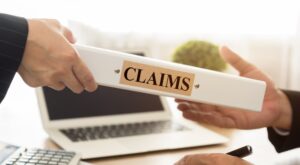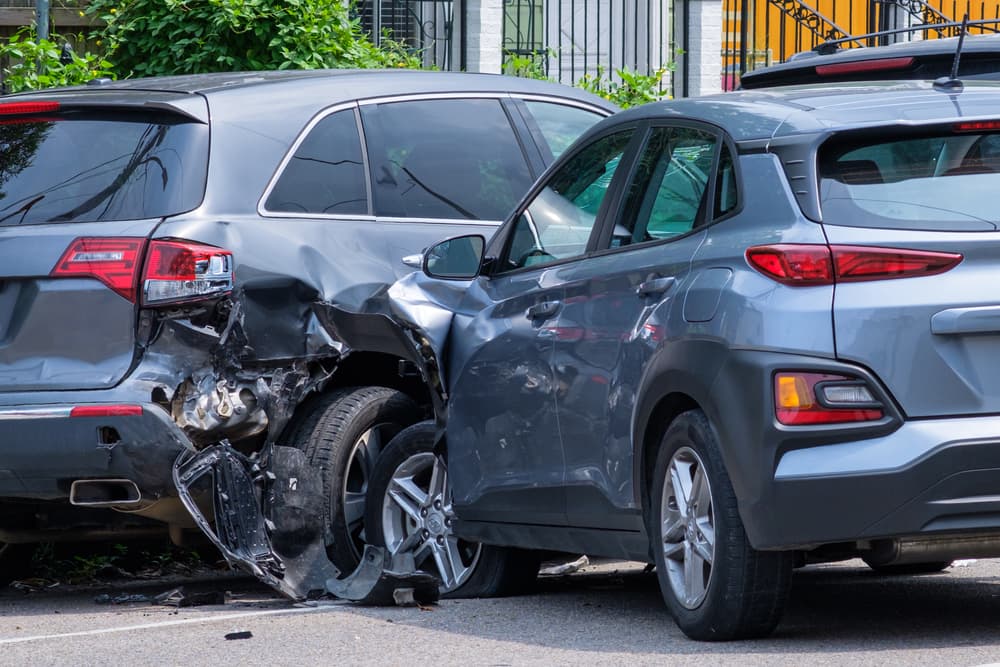The law allows you to recover compensation from manufacturers, retailers, wholesalers, or distributors for injuries caused by defective products. Product liability law gives injured customers a way to recover their damages.
For a product liability claim to succeed, you must prove each element of the claim. Continue reading to learn more about the factors of a product liability claim.
What Is Product Liability?
Product liability is the body of law that allows buyers injured by faulty products to sue manufacturers, distributors, wholesalers, or retailers to recoup their damages. There are three types of product defects: manufacturing, design, and failure to warn. Buyers can recover under negligence, strict liability, or breach of warranty.
Elements of a Product Liability Claim

Although a buyer may recover based on negligence, strict liability, or breach of warranty, a buyer in a product liability case must generally prove the following to recover compensation for their injuries.
The Defective Product Caused an Injury
A product can be defective, but that alone will not allow you to recover damages. There must be an injury from the defective product. Even if you discovered the product was defective when you used it, you cannot sue if you did not suffer injuries or losses.
A Defect was Present in the Product
You must prove that a defect was present when you used the product. Unless there was a defect in the product when you suffered an injury, you cannot win a product liability claim. For example, if you bought new tires for your car and you get into an accident because of a tire malfunction, you must prove that the tires were defective and were not, for instance, installed incorrectly.
The Defect Caused the Injury
The defect must cause the injury. If you purchased a defective product, but the defect did not cause your injury, you do not have a product liability claim. Even if the buyer suffers an injury while using the product as intended, for example, burning themselves with a curling iron while styling their hair, if the defect is not the cause of the injury, then the buyer does not have a product liability claim.
The Buyer Used the Product as Intended
To have a claim against a seller, the buyer must prove they used the product as intended. The seller is not legally responsible for injuries caused by the unforeseeable use of the product.
Types of Defects
Manufacturing Defect
The term manufacturing defect refers to an issue that occurs during the production process. Manufacturing defect claims are hard to prove. If you believe a manufacturing defect caused your injuries, you should consult an experienced attorney to learn more about your legal options.
A buyer must prove the following to win a manufacturing defect product liability claim:
- The manufacturer assembled the defective product.
- The buyer suffered damages.
- The buyer’s damages were caused solely by the defective product, or the defective product contributed to the buyer’s injuries.
- The manufacturer knew or should have known of the defect.
Design Defect
A design defect product liability case involves a correctly manufactured product with a defect in the design itself. Whenever a customer uses a defective product, they risk injury from the defect.
To win a product liability claim due to a design defect, a buyer must prove:
- The buyer shows that a hypothetical alternative design is safer for consumer use.
- The alternative design is economically feasible.
- The alternative design is as or more practical than the original design.
- The alternative design keeps the primary purpose of the original design.
Failure to Warn
A defendant in a product liability claim may be responsible for the harm its products caused if the defendant failed to warn consumers about the potential dangers of using the product. A manufacturer is liable for failure to warn in negligence and strict liability product liability claims.
If the buyer claims the seller was negligent by failing to warn consumers of a potentially dangerous product, they must prove each element of a traditional negligence claim. The elements of negligence are duty, breach, cause, and damages.
If the buyer has a claim for failure to warn under a strict liability theory, the buyer must prove that the risk to the consumer was obvious or unpredictable. A manufacturer is not responsible for any harm the buyer suffers if the danger is obvious. For example, if a buyer burns themselves with a lighter, the manufacturer will not be found liable because the risk of burning oneself while using a lighter is apparent.
Types of Product Liability Claims
Manufacturers, distributors, retailers, and wholesalers must place safe products in the marketplace. When dangerous, faulty products are purchased and used by customers, the parties responsible for the product must pay for the buyer’s injuries.
There are three theories on which to base a product liability claim. A buyer can sue under negligence, strict liability, or warranty. No matter the theory you base your claim on, proving a product liability case is difficult. If you believe a defective product has injured you, contact an experienced product liability attorney.
Continue reading to learn more about the elements of each product liability theory.
Negligence
Negligence product liability claims focus on negligent conduct rather than defective products. A seller may be negligent if they fail to warn the consumer about a dangerous defect present in the product that is not obvious to most consumers.
The elements of a negligence claim are duty, breach, cause, and damages. Victims must prove every element of a negligence claim before recovering compensation. We examine each element of negligence more thoroughly below.
Duty
To be successful in a negligence product liability claim, the buyer must prove that the seller owed a duty to them. A seller owes a duty to any buyer if they produced a defective product or if the seller knew or should have known that their conduct might harm consumers.
The buyer must use the product as intended. The seller does not owe a duty to a buyer if the buyer uses the product in an unforeseeable way.
Breach
A breach happens when the seller fails to fulfill their duty to a buyer. A seller fails to fulfill its responsibility to consumers when it places products on the market that do not meet applicable safety standards. Products sold to the public cannot have defects. When defective products cause injury to buyers, the seller has breached its duty to deliver safe products.
Cause
The buyer must prove that the seller’s negligence caused their injury. If the buyer fails to prove a connection between the seller’s negligence and their injury, the buyer cannot recover compensation for negligence.
Getting medical care immediately after your injury is the best way to establish a link between using a defective product and getting injured. If you suffered an injury from a faulty product, you should seek medical care immediately.
Damages
The buyer must prove that the defective product caused them to suffer damages. There are three broad categories of damages: economic, non-economic, and punitive.
Economic damages are apparent. These damages are easily calculated and may include the cost of medical care, hospitalization, long-term medical treatment, lost income, lost earning capacity and hiring help to perform household duties.
Non-economic damages are not usually visible and cannot be quantified. Examples of non-economic damages include mental and emotional anguish, loss of enjoyment of life, pain, and suffering, and physical impairment.
Awards for punitive damages are rare. The dollar amount paid varies by state. Punitive damages deter defendants from acting similarly in the future. Courts award punitive damages to prevent another buyer from being harmed in the same way again.
Strict Liability
A company is strictly liable if its products cause injury to consumers. Victims do not have to prove intent in a strict product liability claim.
To prove strict product liability, a buyer must prove:
- There was an unreasonably dangerous defect in the product during its design, manufacture, or marketing.
- The company did not intend or expect the product to undergo changes after leaving the manufacturer and the buyer’s purchase.
- The buyer used the product as intended.
- The buyer suffered injuries because of using the product.
Strict product liability claims typically arise if the company manufactures products like explosives, flammables, or certain chemicals. Strict product liability claims can be difficult to prove. Consumers who have suffered an injury from a defective product need an experienced product liability attorney to assist them in pursuing their case.
Warranty
The warranty theory of negligence requires a manufacturer to keep its promises about the product it creates. Warranties can be expressed or implied.
Express Warranty
An expressed warranty is an explicit promise from the seller that the product sold to the buyer is safe for consumer use. The seller’s warranty is usually the reason the buyer purchases the product.
The elements of an express warranty breach include:
- The buyer purchased a product from the seller.
- The seller made a promise about the product to the buyer. The seller’s warranty can be written or verbal.
- The product did not perform per the seller’s representation.
Implied Warranty
An implied warranty is an understanding between a buyer and seller that the product sold is not defective. The two major implied warranties are the implied warranty of merchantability and the implied warranty of fitness for a particular purpose.
The implied warranties of merchantability and fitness for a particular purpose both involve the sale of goods. Because these warranties apply to the sale of goods, the Uniform Commercial Code is the controlling law.
Implied Warranty of Merchantability
The elements of the implied warranty of merchantability are:
- The product passes without objection in the trade.
- The product must be uniform in quality and quantity.
- The product must be fit for its ordinary purpose.
- The product must have adequate packaging and labels.
- The product must conform to its label.
For example, if you buy a laptop from a merchant that sells computers, there is an implied warranty that the computer will perform as a consumer expects.
Implied Warranty of Fitness for a Particular Purpose
The elements of the implied warranty of fitness for a particular purpose are:
- When the buyer purchased the product from the seller, the seller knew or had reason to believe that the buyer wanted the product for a particular purpose.
- The buyer relied on the seller’s judgment to select the product.
- The product is used for a particular purpose.
For example, if a buyer goes to a sporting goods store to purchase a mountain bike to use the bike during hiking trips or on rough terrain, but the seller sells the buyer a road bike, the buyer may have a claim against the seller if the buyer suffers damages.
What Should I Do After a Defective Product Hurts Me?

Your steps after a product liability injury can lay the groundwork for the success of your claim.
Consider doing the following after suffering an injury from a defective product:
- Gather as much information as you can about the product. You may want to note the serial number and model if that information is available.
- You may want to keep any instructions for use.
- Seek medical attention immediately. Always follow your doctor’s instructions and keep copies of your medical records and bills.
- Speak to an experienced product liability attorney.
How Can a Product Liability Attorney Help Me?
Whenever you seek compensation for injuries caused by defective products, the defendant is a large company. Defendants in product liability cases typically have vast resources that help them avoid being found liable and ultimately avoid paying plaintiffs the money they owe for causing the plaintiff’s injuries. Having a product liability attorney working on your side reduces the risk of being overwhelmed by giant company defendants.
People representing themselves in a product liability case tend to have less success getting the money they need to move on from the accident. Product liability is a complex area of the law. Attorneys specializing in product liability will use their resources to help you get the compensation you deserve.



